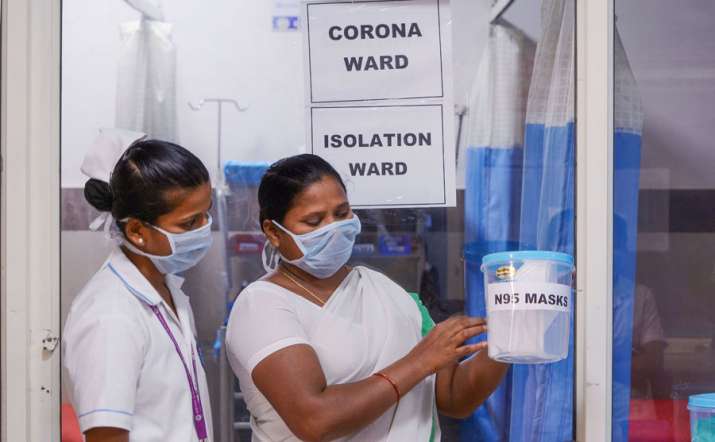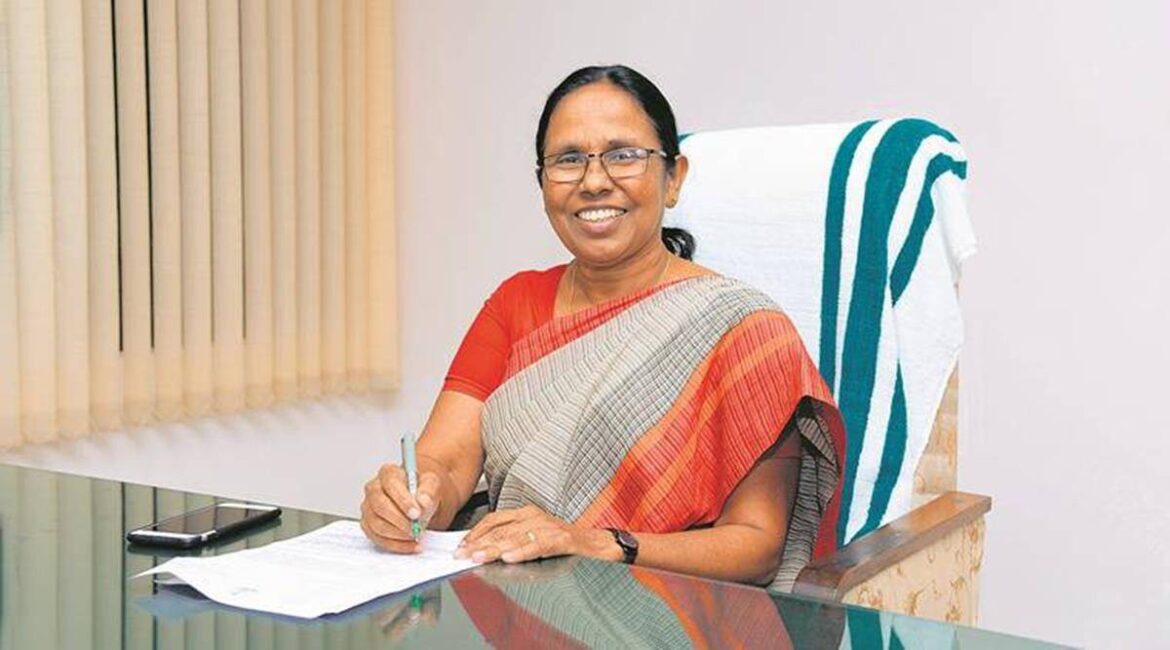The imact of the Covid-19 pandemic has not been gender neutral. There has been a differential impact on women, which is cause of serious concern. Emerging data and reports from those on the front lines, have shown that women and girls have been subjugated to all types of violence, especially domestic violence.
If one were to wade through the annals of history, it is noticeable that violence against women tends to increase in any emergency, including epidemics. Immense stress, disruption of social and protective networks, economic vulnerability and dwindling access to services can exacerbate the risk of women being susceptible to violence.
Understandably Covid-19 has dominated the world’s agenda. Especially in the case of COVID-19, prolonged isolation, restricted physical movement and work-from-home measures to contain the spread of the virus have a particularly acute impact on women. The risk of women and their children being exposed to violence has dramatically increased as members of the family spend more time in close contact. Household stress intensifies, and the risk grows even greater when families also have to cope with potential economic uncertainty or job losses.
Closures of schools and child care facilities have increased the burden on parents, especially women. Distance learning or virtual classrooms often requires the supervision of parents or caretakers. Despite the penetration of internet globally, some families still don’t have access to a reliable internet connection, and childcare obligations may fall on friends, neighbors, or family members while parents work or are in search for work. Some occupations are considered essential and physical presence at work is mandatory while others have the freedom to work virtually. The cumulative stress of balancing work, child care, and children’s education has led to a rise in child abuse. Teachers, child care providers, and clinicians are having fewer interactions with children and families which is significantly reducing the opportunity to assess or recognize any signs of child abuse.
“Before the pandemic, 1 in 3 women would already experience gender-based violence in their lifetime. However, the COVID-19 pandemic has exacerbated this already critical issue”, cites an extremely concerned Melissa Alvarado, UN Women Specialist.
A staggering increase in the number of cases of domestic violence have been reported globally including the developed world. Several reports suggest that cases of domestic violence have tripled in countries like France, Cyprus and Singapore. In France, police reported a nationwide spike of about 30 percent in domestic violence. Christophe Castaner, the French interior minister, said he had asked officers to be on the lookout for abuse.
The Eastern Mediterranean Region has the second highest prevalence of violence against women (37%) worldwide. This is due to structural systems that maintain gender inequalities at different levels of society, compounded by political crises and socioeconomic instability in the region. The Covid-19 pandemic has only aggrevated the situation.
In India, where domestic violence has been a perennial problem, there has been a sharp rise in cases ever since the stringent lockdown was announced by the government. National Commission for Women’s (NCW) data showed that domestic violence complaints doubled after the nationwide lockdown was imposed in India. Tamil Nadu Police have reported an increase in domestic violence complaints. They received approximately 25 calls every day during the lockdown period and registered at least 40 such cases. Similarly, Bangalore Police reported a spike in complaints from 10 calls to 25 calls every day from the victims of domestic violence.
In Spain, the emergency number for domestic violence received 18 percent more calls in the first two weeks of lockdown than in the same period a month earlier.
Around 42% of the Australian practitioners noted an increase in first-time family violence reporting by women.
Mahase reported a 60% increase in emergency calls related to violence against women by their intimate partners in Europe.
Similarly, Agüero (2020) found a 48% increase in helpline calls related to domestic violence in Peru.
In China, a Beijing-based NGO dedicated to combating violence against women, Equality, witnessed a a sudden surge in calls to its helpline, when the government locked down cities in Hubei Province, which was the epicenter of the pandemic outbreak.
A study on Ethiopian women found that almost one in four women experienced any form of domestic violence during the COVID-19 pandemic. Housewives aged less than 30 years, and with arrange marriage were at greater odds of experiencing domestic violence
At the heart of it, domestic violence has always been about power and control. Home isolation, however quintessential to prevent the spread of the virus, is giving still more power to the abuser. The isolation has also shattered support networks, making it far more strenuous and sometimes even impossible for victims to get help or escape. Sexual harassment and other forms of violence against women continue to occur on streets, in public spaces and online. Survivors have limited information and awareness about available services and limited access to the much needed support services.
In some countries, resources and efforts have been diverted from violence against women response to immediate COVID-19 relief, thus compounding the problem.
One interesting study reveals that the stricter the lockdown, the greater the risks of domestic violence. The most stringent lockdown was enforced in South Africa. Amongst other bans, liqour and cigarettes were strictly banned during the country-wide lockdown. One study claims that this has adversely affected the mental health of men and the incidences of domestic violence has increased significantly in South Africa. The magnitute of the problem is so significant that women are having to leave their homes along with their children to nearby shelter homes and distress centers. However, the fear of getting infected with the Covid-19 virus at these centers is dissuading others to tolerate the abuse and abuser at home.
Some advocates have raised concerns about a potential increase in intimate partner violence (IPV) ever since people were confined to their homes and personal movement was limited. Stay-at-home orders, even though rightly intended to protect the public and prevent widespread infection, has left many IPV victims trapped with their abusers. One in 4 women and one in 10 men experience IPV, and violence can take various forms: it can be physical, emotional, sexual, or psychological. Studies show that people of all races, cultures, genders, sexual orientations, socioeconomic classes, and religions experience IPV.
A Glimmer of Hope:
Not all seems to be lost though. Women are being creative about how they seek support. In some places women are going to Pharmacies and grocery stores to reach out for help. In some countries they are setting up pop-up crisis centers at pharmacies and grocery stores to help women subject to harrassment reach out for the much needed help. This is especially helpful when the abuser has confiscated the victims’ phone and other forms of communication are not accessible.
UN Women, the United Nations entity dedicated to gender equality and the empowerment of women, has launched the Shadow Pandemic public awareness campaign, focusing on the global increase in domestic violence amid the COVID-19 health crisis.
The French Government has allocated 20,000 hotel rooms for abused women. Additional Control rooms have been setup by the French Police to distress calls.
Dr. Kemi DaSilvaIbru, a qualified physician with more than 15 years of experience in private practice, dedicates her time to addressing the needs of girls and women. Her unmitigated passion for women’s rights and protection led her to found Women at Risk International Foundation (WARIF) in Nigeria. The foundation addresses the prevalence of rape and gender-based violence through intervention and treatment for girls and women and by providing effective educational and community-based initiatives. She has been helping women and children who have been subjected to physical and sexual abuse during the pandemic.
Community gatekeepers who are at the forefront of rescuing abused women and children opine that the perpetrators get moved to the shed instead of the survivor. This indeed is a wise suggestion. Why should the abused person bear the brunt of shifting to a different location while the abuser gets away with the crime.
Despite all these praiseworthy initiatives during these precarious times, women subject to domestic violence are trapped at home with their abusers and the perpetrators are at a ear-shock distance. Phones and other assets of the victims have been confiscated making it very hard for them to seek support or help. The abusers are using the stringent lockdowns as an excuse to prevent their victims from moving out of their homes.
Ironically, since the pandemic erupted, it is heartwrenching to know that home is no longer the safe place for women, the true homemakers.







